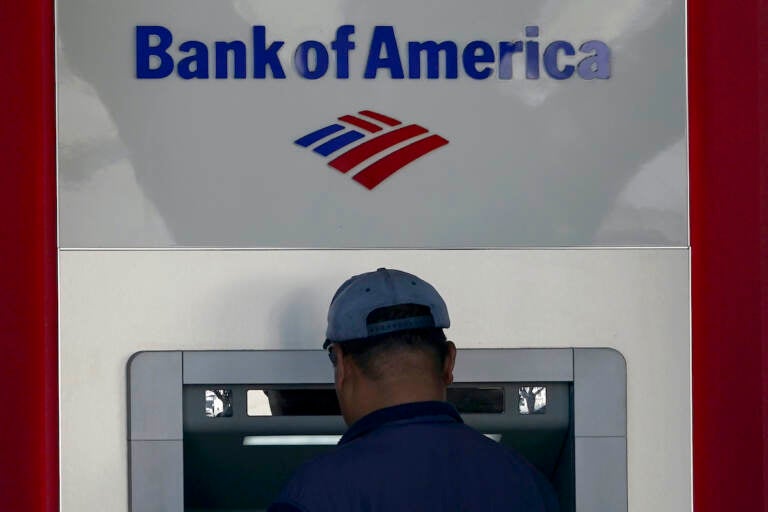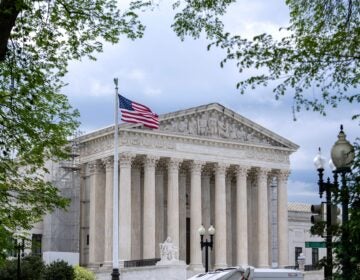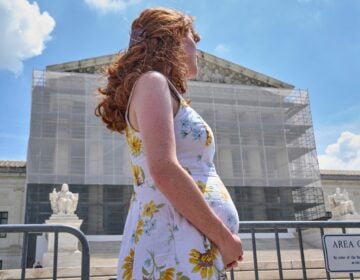BofA hit with $250 million in fines and customer refunds for ‘double-dipping’ fees, fake accounts
The Office of the Comptroller of the Currency found that the bank’s double-dipping on fees was illegal.

Bank of America is being ordered to pay more than $100 million to customers for double-dipping on some fees imposed on customers, withholding reward bonuses explicitly promised to credit card customers, and misappropriating sensitive personal information to open accounts without customer knowledge or authorization. (AP Photo/Jeff Chiu, File)
Bank of America will reimburse customers more than $100 million and pay $150 million in fines for “double-dipping” on overdraft fees, withholding reward bonuses on credit cards and opening accounts without customer consent.
Combined, it is one of the highest financial penalties in years against Bank of America, which has largely spent the last 15 years trying to clean up its reputation and market itself to the public as a bank focused on financial health and not on overdraft fee income and financial trickery.
BofA must refund $100 million to customers, pay $90 million in penalties to the Consumer Financial Protection Bureau and $60 million to the Office of the Comptroller of the Currency. “Bank of America wrongfully withheld credit card rewards, double-dipped on fees, and opened accounts without consent,” said CFPB Director Rohit Chopra, in a statement. “These practices are illegal and undermine customer trust.”
Empowered by a broad mandate from the White House, Chopra and the bureau have focused heavily in the past year on the issue of “ junk fees ” — fees charged to Americans that are often seen as unnecessary or exploitative by banks, debt collectors, airlines and concert venues. Banks such as BofA, JPMorgan Chase, Wells Fargo and others have been a target for the bureau under the Biden administration.
Part of the fines and penalties come because Bank of America had a policy of charging customers $35 after the bank declined a transaction because the customer did not have enough funds in their account, the CFPB said. The agency determined that the bank double-dipped by allowing fees to be repeatedly charged for the same transaction.
The fees often came when customers had routine monthly transactions, like a gym membership. If a customer had too low of a balance to cover the transaction, it would be declined and BofA would charge the customer a $35 fee. The business, who hasn’t been paid, often would recharge the customer’s account, resulting in another $35 non-sufficient funds fee.
The bank ended this practice last year, but will still have to repay customers who got charged before the policy was changed.
BofA has been cutting down on its reliance on overdraft fee revenue for more than a decade, and cut how much it charges customers for an overdraft to $15 last year. Brian Moynihan, the bank’s CEO and chairman, told The Associated Press in 2022 that under these new policies, overdraft fee income was down 90% from 2021. The bank said that it voluntarily reduced overdraft fees and eliminated all non-sufficient fund fees in the first half of last year.
Bank of America also offered people cash rewards and bonus points when signing up for a card, but the CFPB said the bank illegally withheld promised credit card account bonuses.
The CFPB also found that, since at least 2012, Bank of America employees illegally applied for and enrolled consumers in credit card accounts without their knowledge or authorization. It is a similar to, but smaller than, a charge that was made against Wells Fargo, which paid billions in fines after it was determined that the San Francisco bank opened millions of unauthorized bank accounts in order to meet unrealistic sales goals.
In 2014 the CFPB ordered Bank of America to pay $727 million for illegal credit card practices. Last year it was ordered to pay a $10 million civil penalty over unlawful garnishments. Also in 2022, the CFPB and OCC fined Bank of America $225 million and required it to pay hundreds of millions of dollars in redress to consumers for botched disbursement of state unemployment benefits at the height of the COVID-19 pandemic.
WHYY is your source for fact-based, in-depth journalism and information. As a nonprofit organization, we rely on financial support from readers like you. Please give today.





